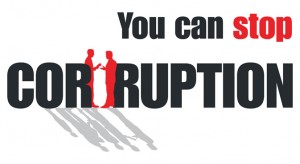Independent Attorney-General necessary to fight corruption – Justice Appau
 The dual role of the Attorney General as a Minister of Justice and Cabinet member and as prosecutor general must be separated to ensure that people cited for corruption and sanctions cases are successfully prosecuted.
The dual role of the Attorney General as a Minister of Justice and Cabinet member and as prosecutor general must be separated to ensure that people cited for corruption and sanctions cases are successfully prosecuted.
Mr Justice Yaw Appau, an Appeal Court Judge, who was Sole Commissioner of the Judgement Debt Commission, made the recommendation at a lecture in Accra.
He also called for the proper application of Section 179 A and 179 C of Act 2960, which are on Causing Financial Loss to the State, saying. “If truly as a country, we have committed ourselves to ensuring probity and accountability, equality and justice as expressly stated in the Constitution, then it behooves us all to hail this law that seeks to ensure that all of these qualities exist and apply and in all our public dealings”.
Justice Appau explained that the dual role of the Attorney General made it difficult for occupants of that position to prosecute certain individuals, especially if they belonged to the same government or political party.
“If you are part of a government and a Cabinet and one of your members fall foul of the law, it will be very difficult to come out boldly to prosecute and if you attempt it, you’ll have problems with your peers,” he stated.
“But if the Attorney General is independent of a government, has no role in a government, is not a politician, and his role is just to prosecute cases and defend the State, I’m sure that the Attorney General will discharge his functions to the best of his abilities.”
Mr Justice Appau was addressing the topic, “Promoting Public Sector Accountability in Ghana” at the 36th Management Day Celebration of the University of Ghana Business School (UGBS).
Drawing on his experiences as a judge, and recently as the Sole Commissioner, Mr Justice Appau noted that one could not talk about accountability without touching on the concept of corruption.
“The absence of the former nurtures the latter,” he explained. “Where there is proper accountability, corruption finds it difficult to make headway”.
He stated that the absence of proper accountability in public institutions, which bred corruption in these institutions, was one of the major findings of the Judgement Debt Commission, and that had to be taken seriously and addressed if the country wanted to move forward.
“The irony is that while everyone is talking about corruption, no one wants to accept the fact that he/she is corrupt,” he observed. “We point accusing fingers at each other on mere perceptions and feign our non-inclusiveness”.
Corruption, he said, had, therefore, become so elusive that no one had ever ventured to find a practical antidote to curb it, apart from the many workshops organised to discuss it.
“We behave as if we have seen it but appear not to have seen it because indirectly we seem to approve of it and indulge in it unknowingly,” he bemoaned.
Justice Appau said although there were rules and regulations and mechanisms in place in public institutions to ensure accountability and prevent corruption, including the constitutional provisions, oversight powers of Parliament, among others, these were not properly implemented or used.
“Although efforts have been made to ensure some transparency in the dealings of public institutions… transparency, as seen in measures like the Meet the Press series and People’s Accountability Fora are not the same as accountability because they do not allow for public officials to fully account for their actions,” he said.
“Transparency is just an instrument of accountability and does not constitute accountability”.
He, however, emphasised that the lack of sanctions and the lack of proper records keeping, among others, were a major deficit of accountability mechanisms.
“We can promote proper accountability if and when government strengthens and tightens institutional structures in the public service by putting in control measures and ensuring they are adhered to by all categories of public officials,” he said.
Mr. Albert Kan Dapaah, a former Chairman of the Public Accounts Committee of Parliament, and Co-founder of FAT-Africa, also noted that although there were inherent mechanisms embedded in the financial system such as the budget cycle, aimed at ensuring accountability, public officials were not allowing those mechanisms to work.
He explained that there was no need to look beyond the Public Financial Management System since they had embedded checks and balances.
Mr Kan-Dapaah, was speaking on Accountability and Corruption: the Role of Public Sector Financial Management Systems.
He explained that at each stage of the budget cycle, that is, formulation, approval, implementation and audit, there were checks and balance meant to ensure accountability.
At the formulation level, he said, there was a requirement for Ministers of Finance to align budget to the country’s Medium-term Development Goals set out by the National Development Planning Commission, which would help ensure financial accountability.
However, he noted, most Ministers of Finance aligned the budget to their party manifestos instead of the national development goal.
“This mechanism is also not helped by the fact that the chair of the NDPC is not a Cabinet member while most of the members are,” he pointed out.
Mr Kan-Dapaah, a former Minister, noted that the dependence of the Auditor General on the Executive did not allow him to independently discharge his duties as required by law.
“Their appointment by the Executive as well their financial dependence on the Executive means their work is limited, a dependent auditor is a contradiction in terms,” he stated.
He also emphasised the need to implement sanctions against people found to be corrupt and called on civil society, the media, academia and the elite to boldly demand information from public officials based on which they could also demand accountability.
Source: GNA
